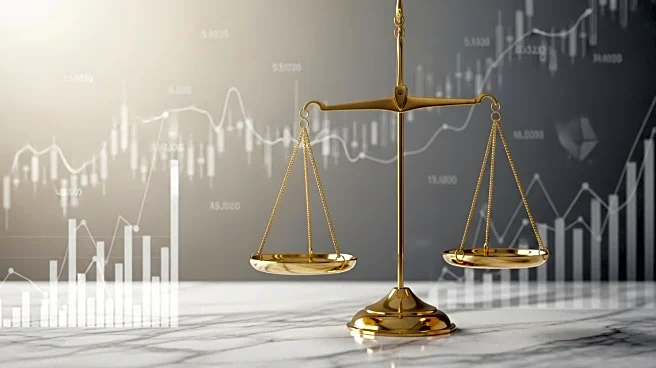What's Happening?
President Donald Trump is engaged in a legal battle to remove Federal Reserve Governor Lisa Cook, citing allegations of mortgage fraud. This move has raised concerns about the independence of the Federal Reserve, a key institution in U.S. economic stability. Trump's actions have sparked a constitutional debate, as Cook's lawsuit argues that the allegations are unproven and unrelated to her duties at the Fed. Legal experts warn that this could set a precedent that erodes the Fed's independence, which is designed to protect monetary policy from short-term political pressures. The market response has been mixed, with the VIX volatility index spiking to 22.5, indicating investor anxiety. Safe-haven assets like gold have risen, while the U.S. Dollar Index has fallen, reflecting concerns over the Fed's credibility.
Why It's Important?
The politicization of the Federal Reserve could have significant implications for U.S. financial markets and global economic stability. If Trump succeeds in removing Cook, he could secure a majority on the Fed board, aligning it with his economic agenda. This could lead to inflationary spirals, similar to historical cases in Turkey and Venezuela, where central bank independence was compromised. Trump's pressure on the Fed to cut interest rates risks prioritizing short-term political goals over data-driven policy, potentially undermining the Fed's ability to anchor inflation expectations. This could result in higher long-term borrowing costs and reduced foreign investment, affecting the U.S. economy and its global standing.
What's Next?
The legal outcome of Cook's case will be pivotal. If courts uphold Trump's authority to redefine 'cause,' it could embolden future administrations to manipulate the Fed for partisan ends. Conversely, a ruling in favor of Cook would reinforce institutional safeguards but might not fully restore market confidence, given the prolonged uncertainty. Investors must remain vigilant, hedging against potential instability through diversified portfolios and a focus on inflation-protected assets.










